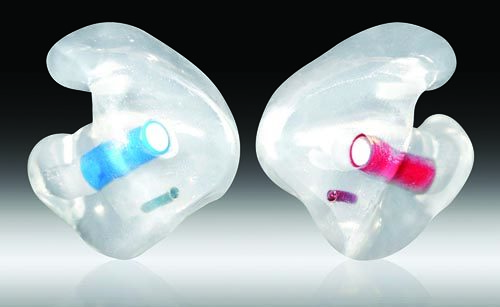Situational hearing awareness at work
Can you tell me more about hearing protection products that help provide situational awareness at work?

Responding is Garry G. Gordon, CEO, audiologist, E.A.R. Inc., Boulder, CO.
With my more than 35 years’ experience working with industrial, recreational, law enforcement, music and military accounts, it has been interesting to witness how hearing protection often is selected and assigned.
We all know the ramifications of excessive noise exposure, but in many cases the selection of hearing protection is not always given the attention it deserves. After reviewing numerous audiograms, in addition to hearing surveys and fit check reports, we had many indications that end users were not installing their protection properly or were intentionally wearing them incorrectly.
Why?
Some said full insertions are uncomfortable, while others implied they already had mild or moderate hearing loss and needed a product that would assist with situational awareness. In other words, they were in need of being acoustically aware of their surroundings before circumstances resulted in negative consequences.
Lack of attention to such matters has proven to be expensive. For example, it has been estimated that in the United States we pay more than $1.6 billion annually for hearing-loss claims from the military. Communication breakdowns or not hearing critical sounds with machinery or moving vehicles also contribute to undesirable expenses for industrial accounts.
It also should be understood that employees with unidentified or untreated hearing loss who work in areas that are not noisy also contribute to expensive mistakes that are costly to industry. New legislation has opened a door for employees to buy over-the-counter hearing aids or personal sound amplification products at an affordable price.
What options can be considered for an employee to hear better while working in a hazardous noise environment?
Filtered ear protection is a common choice made available to workers who need to tamp down the intensity while minimizing this risk of overexposure. One of the most recent items has been a dual-filtered product that provides variable attenuation and also works for impact sounds such as gunfire. As the noise level goes up, so does the attenuation. Most, but not all, filtered protection is available in generic form with different size options or custom fit. These can be worn under a muff when dual protection is required. Another version is available in foam.
Generic and custom molded products that connect with communication devices such as radios, Bluetooth and smartphones are available.
Electronic earplugs and muffs are another option, and they too can integrate communications into their circuitry. These options are considerably more expensive but extremely valuable where there is a need to hear accurately while engaged in a noisy environment.
Situational awareness can coexist with hearing protection. Proper selection of such devices will minimize the risk of noise-induced hearing loss and allow an employee to perform better and not feel so isolated.
Technology constantly is changing, and it’s critical to understand the options that are available and how they work.
Editor's note: This article represents the independent views of the author and should not be construed as a National Safety Council endorsement.
Post a comment to this article
Safety+Health welcomes comments that promote respectful dialogue. Please stay on topic. Comments that contain personal attacks, profanity or abusive language – or those aggressively promoting products or services – will be removed. We reserve the right to determine which comments violate our comment policy. (Anonymous comments are welcome; merely skip the “name” field in the comment box. An email address is required but will not be included with your comment.)

